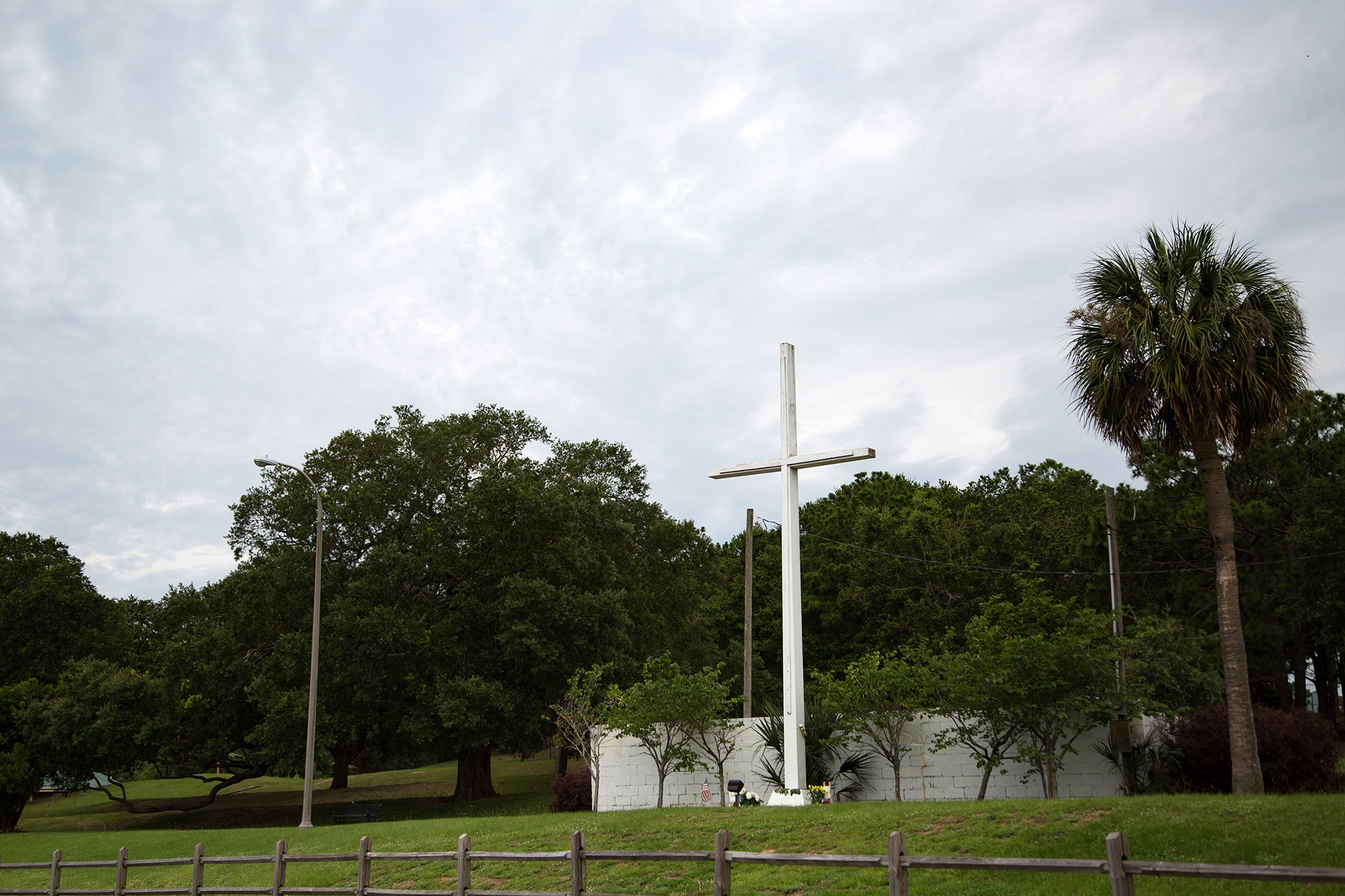
PENSACOLA, Fla. (BP) — If the federal court had its way, a 34-foot cross would remain at its Pensacola, Fla., post. But “flawed precedent” that judges called a “hot mess” forced them to rule otherwise, the judges wrote in their opinion.
 Judges said their hands were tied by the 1983 ruling in the nearly identical case of ACLU v. Rabun County, when the Eleventh Circuit U.S. Court of Appeals ordered a cross be removed from Black Rock Mountain State Park in Georgia.
Judges said their hands were tied by the 1983 ruling in the nearly identical case of ACLU v. Rabun County, when the Eleventh Circuit U.S. Court of Appeals ordered a cross be removed from Black Rock Mountain State Park in Georgia.
“Given the parallels between the two cases — and crosses — we think it clear that Rabun … controls our analysis and requires that we affirm the district court’s decision,” the three-judge panel in the current Eleventh Circuit Court wrote in its Sept. 7 decision.
The Eleventh Circuit judges’ ruling answers Pensacola’s appeal of a 2017 lower court ruling in favor of atheists to remove the cross from Bayview Park. The accusers first sued in 2016, contending the cross violates the Establishment Clause of the U.S. Constitution, or separation of church and state.
Two of the three judges in the latest ruling, Charles Ashley Royal and Kevin Newsom, said the precedent itself should be revisited and reversed by the full Eleventh Circuit slate of judges.
“There is no injury, no harm, and no standing to support jurisdiction in this case, but there is an Eleventh Circuit rule that directs us to affirm the district court based on this flawed precedent,” Royal wrote in his concurrence. “Rabun County needs to be reversed, and this Court needs to devise a practical standing analysis.”
Both Royal and Newsom called the precedent and other legal jurisprudence in the Establishment Clause “a hot mess.” The statements come just as the U.S. Supreme Court has been asked to review an Establishment Clause case that struck down a 40-foot cross in Bladensburg, Md., namely the American Humanist Association v. Maryland-National Capital Park and Planning Commission.
Pensacola will appeal yet again, its Becket Fund for Religious Liberty attorneys said.
“The Constitution doesn’t require the government to scrub every religious symbol from the public square,” Becket Vice President and Senior Counsel Luke Goodrich said in a Sept. 7 press release. “The Supreme Court has repeatedly said that the government can recognize religion as a fundamental part of our history and culture, and we’re glad that the majority of the court agreed that the cross is constitutional.”
Pensacola Mayor Ashton Howard said the cross is not only a religious symbol, but a World War II memorial that is “an important part” of the city’s history and culture, comparable to 170 other displays in Pensacola parks.
“To tear down this symbol just because a few are offended by it shows hostility to religion, not neutrality,” he said in Becket’s press release. “The city looks forward to being vindicated on appeal — as the majority of the court said it should be.”
Law allows the city 14 days to ask the Eleventh Circuit for a rehearing, and 90 to ask the U.S. Supreme Court to hear the case, Kondrat’yev et al v. City of Pensacola.
















